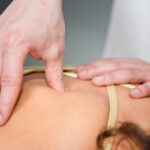Every year, over 50 million Americans of all ages suffer from various types of allergies. In fact, allergies are among the leading causes of chronic illness in the country.
While allergies are rarely fatal, they can cause serious discomfort. Common allergic reactions include coughing, sneezing, itching. Allergens can even cause hives and rashes.
There’s no cure for allergies, but if know the answers to questions such as “when is allergy season?” and “how can I lessen the severity of my allergies?” you can keep your symptoms under control. Keep reading to find out more.
When is Allergy Season?
The height of your allergy symptoms will vary depending on what you’re allergic to and where you live. For example, if you live in the Southern United States, you might begin to notice seasonal allergy symptoms as early as January.
Also, if you’re allergic to things like dust mites or pet dander, you will, unfortunately, have allergies all year.
That said, assuming you have the most common seasonal allergies (to flower buds, blooming trees, etc.), you can expect to experience the worst allergy symptoms between March and June.
How to Address Allergy Symptoms
As we mentioned above, there’s no cure for allergies. However, there are a variety of ways to reduce your exposure to allergens and your body’s reaction to them when you do come into contact with them. Here are a few ideas for finding relief from seasonal allergies.
Reduce Exposure
There’s nothing better than spending a few hours in the sunshine, but when allergen levels are high, it’s best to stay indoors. The best time to get outside is after a rainstorm, as the precipitation washes the pollen away.
If you do go outside, wear a pollen mask if you’re doing yard work. Once you’re back indoors, you should remove the clothes you wore outside and hop in the shower to rinse the pollen from your skin and hair.
Take Allergy Medication
There are many over-the-counter allergy remedies to choose from, and some will be more effective against your specific allergies than others. There are oral antihistamines, decongestants, nasal sprays, and combination medications.
Not sure which one will work best? Try out a few different varieties until you find the right one for you. If you’re interested in trying out nasal spray, click for more information.
Rise Your Sinuses
Rinsing your sinuses isn’t the most comfortable experience, but it can be highly effective against allergies. It’s also quick and inexpensive, so there’s no harm if it doesn’t work as well as you’d hoped.
You’ll need a neti pot filled with a saline solution that’s sterile. Make sure you buy distilled water to use in your saline solution. Squirt water into each nostril, tilting your head to the side to allow the water to come out of the other nostril. When you’re done, rinse your irrigation device with sterile, distilled water.
Learn About Your Allergies to Defeat Them
The key to finding allergy relief is to learn everything you can about your specific symptoms. By paying attention to your body, you’ll have an exact answer to “when is allergy season?” for you, as well as which allergens affect you most.
Now, awareness will take you far. But if your symptoms become too severe or your efforts aren’t making a difference, it’s time to set an appointment with your doctor.
Looking for more tips for maintaining optimal health all year round? Be sure to check out our blog!




